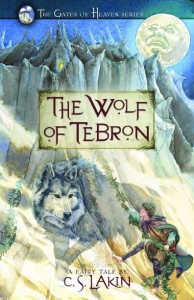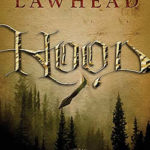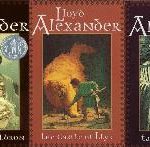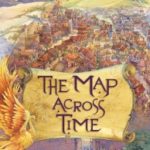Guest Blog: C. S. Lakin
C. S. Lakin is the author of the new fantasy series The Gates of Heaven published by AMG/Living Ink. Book One, The Wolf of Tebron, released this fall and will be the early January feature of the CSFF Blog Tour
– – –
Fairy Tales As a Subgenre of Fantasy, Part 1
By C. S. Lakin
Allegorical fantasy is a powerful way to convey themes using symbolism and metaphor. Many people scoff at fantasy and find no interest in it. But as a culture, as a world of people, we only have to look at most of the top-selling novels in all of history. Nearly all of them—from Pilgrim’s Progress by John Bunyan to The Lord of the Rings and Harry Potter—are fantasy. Why is fantasy such a powerful medium, and why does it have such staying power?
My answer may surprise you. Many have heard of Joseph Campbell’s study on the power of myth. Myth is deeply entrenched in our culture, in our psyche, in our past. And it’s our past that intrigues me. Because of the mythic elements that make up our past, our true history is hardwired into who we are and casts shadows on our place in the universe.
What compelled me to write fantasy was not just my love for the genre (and I have been reading fairy tales and fantasy books since grade school). It was because I came across a small book written in the late 1800s by the famous G. K. Chesterton called Orthodoxy. Chesterton devotes an entire chapter to the merits of fantasy and particularly fairy tales. He calls this chapter “The Ethics of Elfland.” There are many types of fantasy styles and genres, but only the fairy tale follows specific rules that mirror our true existence in this world. And this is why I believe fairy tales resonate to the deepest part of our souls.
One benefit to fairy tales, according to Chesterton, is their ability to wake us up and make us look at the magic and splendor that is our own existence. He says the strongest emotion fairy tales induced in him was “that life was as precious as it was puzzling. It was ecstasy because it was an adventure; it was an adventure because it was an opportunity. It was good to be in a fairy tale. The test of all happiness is gratitude. And I felt grateful, though I hardly knew to whom.”
Here’s the point that really opened my eyes. He spoke of the great principle of fairy philosophy: “I will call it ‘The Doctrine of Conditional Joy.’ The note of the fairy utterance always is, ‘You may live in a palace of gold, if you do not say the word cow.’ Or ‘You may live happily ever after with the King’s daughter, if you do not show her an onion.’ The vision always hangs upon a veto. All the dizzy and colossal things conceded depend upon one small thing withheld. All the wild and whirling things that are let loose depend upon ONE thing that is forbidden….In the fairy tale an incomprehensible happiness rests upon an incomprehensible condition. A box is opened and all evils fly out. A word is forgotten and cities perish. A lamp is lit and love flies away…and . . .” (This is the kicker!) “…An apple is eaten and the hope of God is gone.”
Of course, we know Adam and Eve didn’t eat an apple, but they did eat a piece of forbidden fruit. Do we really get his point? Our entire existence, our purpose in life, the reason we are here, now, in this world, which is in this mess, is all because of this doctrine of conditional joy—a doctrine God invented and imposed upon us. This is why fairy tales are so powerful. Our lives are all wrapped around this one truth—that a condition was given, and when it was overstepped, we lost God. And now we are spending our lives trying to gain back what has been lost. We have been created to search for God, to look for what has been lost, and to discover what the one condition is that will restore all things to perfect balance.
(will be continued in next weel)











































I read “Someone to Blame” and loved it. Her writing is fantastic. Can’t wait to read her fantasy work.
Orthodoxy…great, great book. Rarely leaves my nightstand. Glad to see someone else feels the same way.
With all these recommendations I just had to order my copy.
I recently read The Man Who Was Thursday again after a gap of 35 years. I understood it so much better this time around.
[…] This post was mentioned on Twitter by Deborah Bizarria and Susanne, Speculative Faith. Speculative Faith said: "The Wolf of Tebron" author C.S. Lakin on why fantastic fairy tales are always so popular on #SpecFaith. http://bit.ly/gXilps […]
[…] introductory post discussed the power of fairy tales and the way fairy tale structure is different from other fantasy […]